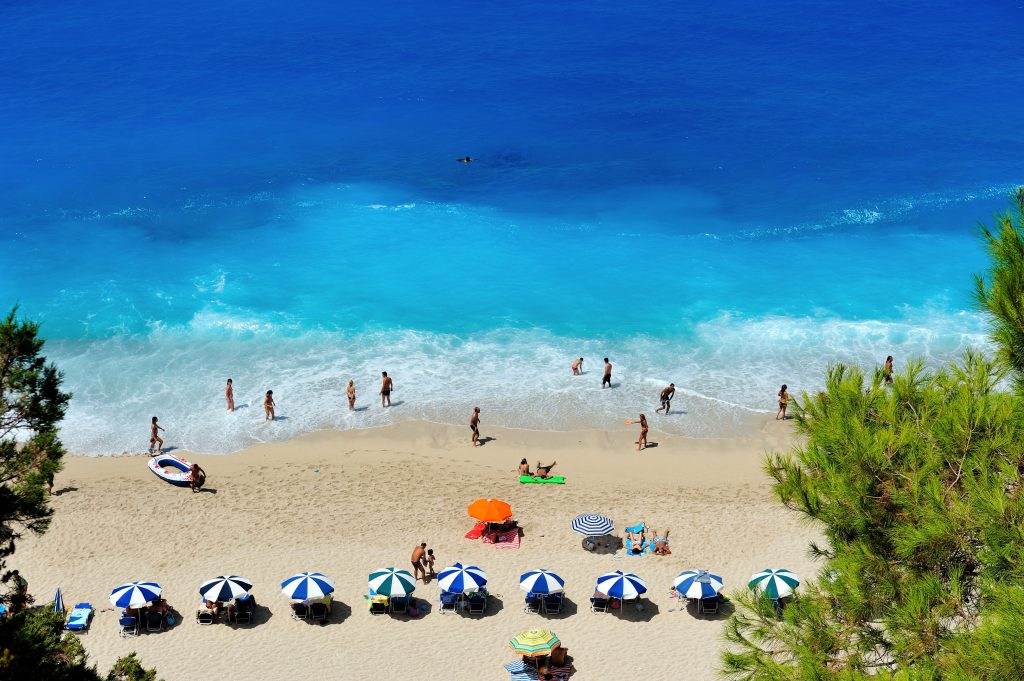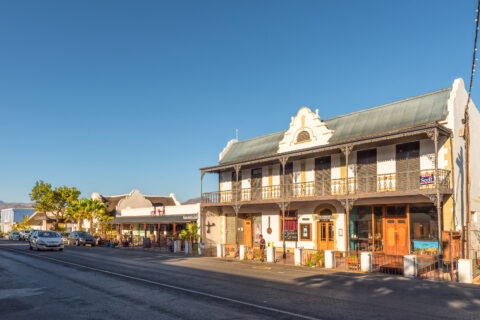Financial Mail Travel
Thinking Of Going Somewhere Next Summer?
Americans have ruined Florence. Wrecked it. Trampled it flat. And worst of all, they don’t even know why they’ve gone there in the first place.
Yes sir, art critic James Jarves has had it with Yanks abroad. In a letter to a friend he despairs that the fine art of travel has been “perverted by these traveling pests” and turned into a “frigid duty”.
“Nothing must be allowed to escape their observation that has attained the dignity of being a ‘sight’,” he writes. “They neither study, examine, nor look… ‘To see’ is the entire creed – to know, remember, or understand are indifferent points.”
Of course it’s not just Florence. Jarves might be describing any number of cities from Abu Dhabi to Zagreb: clogged by disconsolate Brits complaining about the food and the enraging localness of the locals; lit up by the mobile phones of millennials yapping about how, like, wasted they got last night; brought to a halt by busloads of Chinese visitors stopping traffic so they can take pictures of oncoming cars. (That last one happened to me in Cape Town a few weeks ago. About ten people in China now have a photo of a South African motorist’s middle finger.)
Yes, Jarves could be writing about most tourist destinations right now. Except that he isn’t: he wrote that letter in the 1850s.
This is probably reassuring news for those who worry that mass tourism is wrecking the planet: Jarves’s 19th-century sulk reminds us that people have been mourning tourism’s effect on their favourite places for centuries. (There is archaeological evidence that wealthy Egyptians were travelling for pleasure 3 500 years ago, no doubt causing the residents of pretty Nile hamlets to declare that the place had gone to hell now that it had been overrun by half a dozen visitors.)
Unfortunately these are false consolations. You can try to take refuge in history but the cold, clear numbers of modernity are impossible to ignore. In 2016, the United Nations World Tourism Organisation reported that 1.2 billion people had travelled internationally. That’s the entire number of humans who were on the planet when Jarves wrote to his friend.
In other words, this isn’t tourism as usual. This is bad. So bad, in fact, that a new word has entered the lexicon in the past few years: “overtourism”.
Venice provides a perfect definition. In the 1950s, the floating fantasy had a population of 175 000. Today, only 54 000 Venetians remain. The rest have fled the 28 million tourists that pour into those narrow streets every year, driving up prices and rents while drastically reducing Venetians’ quality of life. Indeed, overtourism is accused of threatening the very foundations of Venice, as armadas of cruise ships churn up its lagoon and shift the pilings that keep the whole thing above water.
Venice is the most famous victim of overtourism, but it is by no means the only one. All over the tourist-ravaged world, rents are rising and locals are being squeezed out of the places where they were born.
Some are literally fighting back. In Spain, where tourists outnumbered citizens almost two to one last year, anti-tourism activists have been slashing the tyres of busses and bikes, and spray-painting inhospitable slogans on buildings.
Perhaps realising that unrest might become more common if nothing is done, some destinations are trying to massage overtourism back into a more sustainable shape. This year, Venetians voted to ban large cruise ships from their port. Dubrovnik uses cameras to monitor the crowds pouring off the ships and pinches off the stream once the town is effectively full. Amsterdam recently hiked its tax on tourists checking in to hotels in the town’s oldest and most central parts, a subtle nudge to young, penny-pinching tourists to take their beer bikes and their noisy vomiting elsewhere. Milan has been even more cunning: it has banned selfie-sticks in some neighbourhoods, which, for millenials, is like banning oxygen.
Ultimately, though, such moves are just a row of sandbags in the path of a tsunami.
Growing middle classes in the world’s developing economies will contribute millions of new tourists in the coming decades, every one of them eager to take the photographs that prove you’ve arrived: peace signs at the Eiffel Tower; shopping bags in Dubai. China alone will send 200 million tourists into the world in 2020. That’s the combined populations of Spain, France and the United Kingdom, renting the Airbnb that used to be your home until it became too expensive to live in it.
It seems like an unstoppable surge. Mass tourism is so urgent and inexorable that it can feel like a kind of hysteria, the reality of a place completely subsumed by tourists’ determination to go there and post something, anything, on Facebook. If Venice sank into the mud it would probably still get 50 000 visitors a day, all gazing in awe at empty sky where buildings once stood.
The solution, if one is found, will require compromises and very unpopular decisions. But while local governments experiment with eating their cake and having it, and anti-tourism activists decide just how hard a line they can take without alienating the people they claim to be serving, perhaps it is time for the individual tourist to accept personal responsibility for overtourism. Perhaps now is the moment, as a billion people swirl around in an unprecedented stampede, to own the fact that that planet-sized mob starts with a single tourist.
We know that gradual change is possible. Twenty years ago, plastic was used and discarded without a second thought, but now, as we begin to understand its catastrophic effect on the planet, it is slowly being stigmatised. When it comes to tourism, millions will remain the undiscerning zombies that Jarves described. But perhaps some will begin to feel their aspirations and fantasies tinged with creeping doubts; a glimmer of understanding that their presence devalues and degrades many of the places they’ve paid so much to see.
So where am I going this summer? Nowhere. You should try it. It’s a nice place. And I know 54 000 Venetians who agree.






 Sign-up and receive the Business Media MAGS newsletter OR SA Mining newsletter straight to your inbox.
Sign-up and receive the Business Media MAGS newsletter OR SA Mining newsletter straight to your inbox.